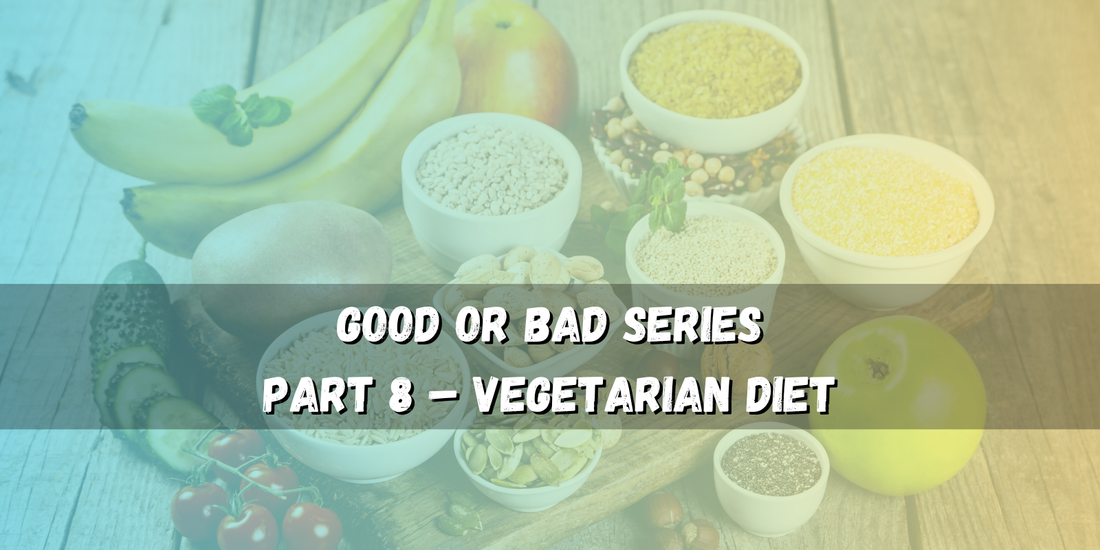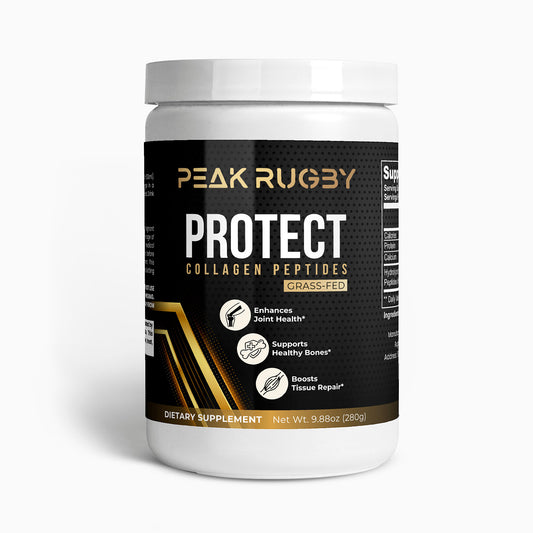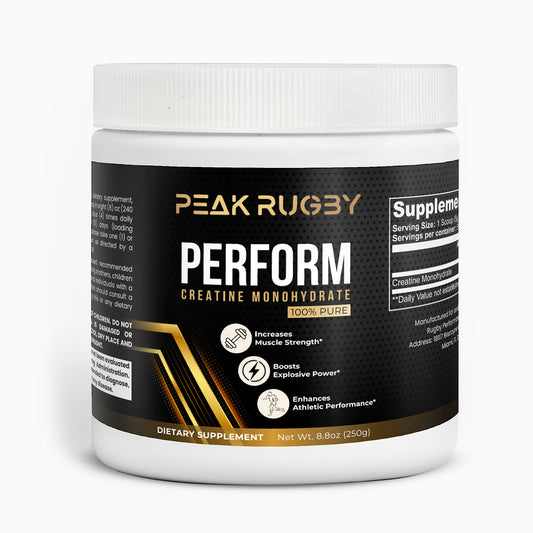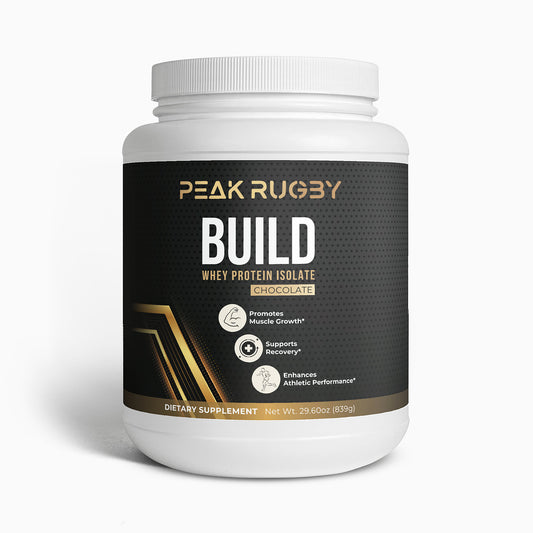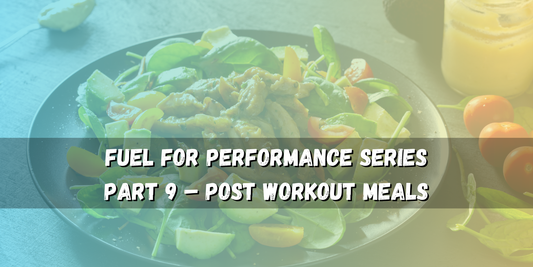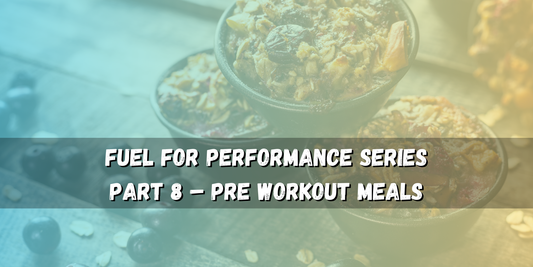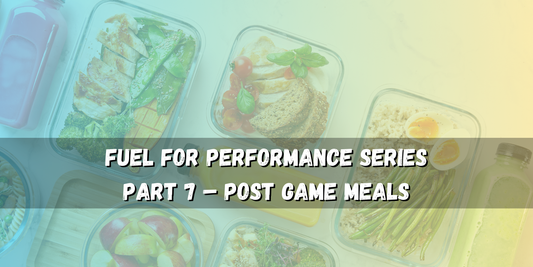Vegetarian diets are often seen as a “middle ground”—cleaner than meat-heavy eating, but more flexible than full veganism. You’ll still hear people question whether it’s enough for athletes who need real strength, speed, and power.
So what’s the truth? Can you perform at a high level, build muscle, and recover fully on a vegetarian diet?
In Part 8 of the Good or Bad Series, we break down how vegetarianism affects strength, muscle gains, recovery, and long-term performance—and what to focus on if you want it to work.
Here’s how the series looks:
- Part 1: Fasting – Good or Bad for Performance?
- Part 2: Dairy – Fuel or Flaw for Athletes?
- Part 3: Gluten – Cut It or Keep It?
- Part 4: Processed Foods – Fuel or Fail?
- Part 5: Raw Meats & Eggs – Hack or Health Risk?
- Part 6: Keto Diet – Can It Work for Athletes?
- Part 7: Vegan Diet – Enough to Perform?
- Part 8: Vegetarian Diet – Can You Build Strength & Power?
- Part 9: Pescatarian Diet – Balanced or Falling Short?
- Part 10: Carnivore Diet – Can Meat-Only Diets Boost Performance?
Let’s move to the next one: Vegetarian.
WHAT IS A VEGETARIAN DIET?
A vegetarian diet excludes all meat, poultry, and fish—but still includes:
- Eggs
- Dairy (milk, yogurt, cheese, butter)
- Plant-based foods: fruits, vegetables, grains, legumes, nuts, and seeds
Some vegetarians avoid eggs or dairy (lacto-vegetarian, ovo-vegetarian), but most athletes follow a mixed approach.
WHY ATHLETES CHOOSE VEGETARIAN
- Ethical or environmental reasons
- Easier digestion (less heavy meats)
- Belief in reduced inflammation or lighter recovery
- Wanting cleaner eating without going fully vegan
- Cultural or religious dietary patterns
Compared to veganism, vegetarian diets are easier to sustain and often more supportive of performance—if structured correctly.
PROS OF VEGETARIAN FOR ATHLETES
- More protein variety – With eggs, dairy, and plant-based proteins
- Easier to hit macros – Whey protein, Greek yogurt, eggs = convenient protein sources
- Higher nutrition access – B12, iron, zinc, and creatine are more available than in vegan diets
- Cleaner digestion – Less heavy meat = easier on some athletes' guts
- Natural calorie control – Many vegetarians eat more fiber and whole foods
COMMON CHALLENGES WITH VEGETARIAN DIETS
1. Not enough high-quality protein
- Many athletes under-eat protein or rely too much on carbs
- Need to combine plant + animal sources to optimize amino acid profiles
2. Lower creatine and iron stores
- Less muscle energy and oxygen transport if not supplemented or planned well
3. Still room for junk
- Vegetarian ≠ healthy if the diet is full of cereal, bread, fries, and fake meats
WHEN IT WORKS
- You’re eating eggs, Greek yogurt, and whey protein regularly
- You’re getting enough calories and not under-eating
- You're tracking or estimating daily protein intake (especially post-workout)
- You're supplementing if needed (creatine, iron, B12)
- You focus on real food, not meat-free processed snacks
WHEN IT DOESN’T
- You skip protein at meals
- You avoid eggs/dairy and don’t supplement
- You rely on cereal, pasta, and bread for most calories
- You’re trying to gain muscle or size with no structure
- You recover slowly and feel flat in workouts
CAN YOU BUILD STRENGTH & POWER?
Verdict: Yes—if you’re structured.
Vegetarian diets can absolutely support muscle gain, power, and recovery when they include high-protein foods like eggs, whey, and Greek yogurt. But if you under-eat or rely on grains and processed foods, your results will suffer.
COACH’S TAKE
Vegetarian athletes can do really well—if they eat with intent. I’ve seen high school and college players thrive on eggs, Greek yogurt, and quality carbs.
But if you’re going meat-free and still skipping meals or eating junk, don’t expect to get stronger. A vegetarian diet still needs to be built for performance.
WANT TO TRAIN SMARTER AND FUEL BETTER?
Enter your email below to join the newsletter and get 15% off your first supplement order—plus free weekly tips straight to your inbox:
- Monday Training Tip: Strength, recovery, mobility, and performance routines
- Thursday Nutrition Tip: Meals, macros, supplements, and fueling strategies
If you found this article helpful, don’t forget to:
- Like and share this post with your teammates and fellow rugby fans
- Bookmark the blog to stay updated on the next rounds
- Follow @gopeakrugby on X and Facebook and subscribe to our Youtube Channel for more rugby analysis, match recaps, and insights

